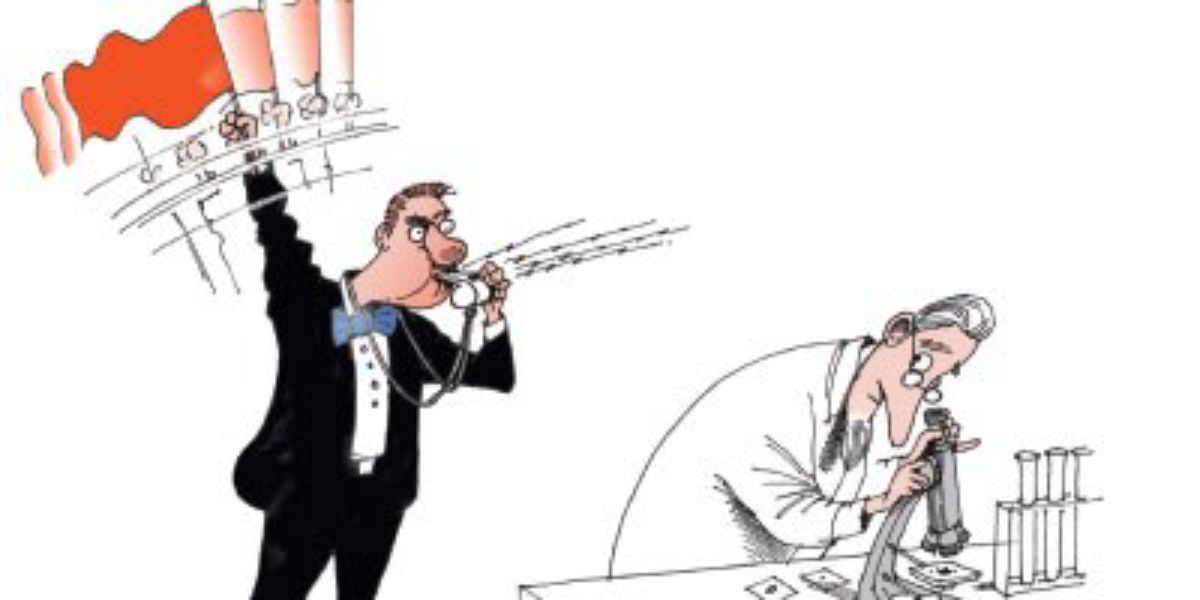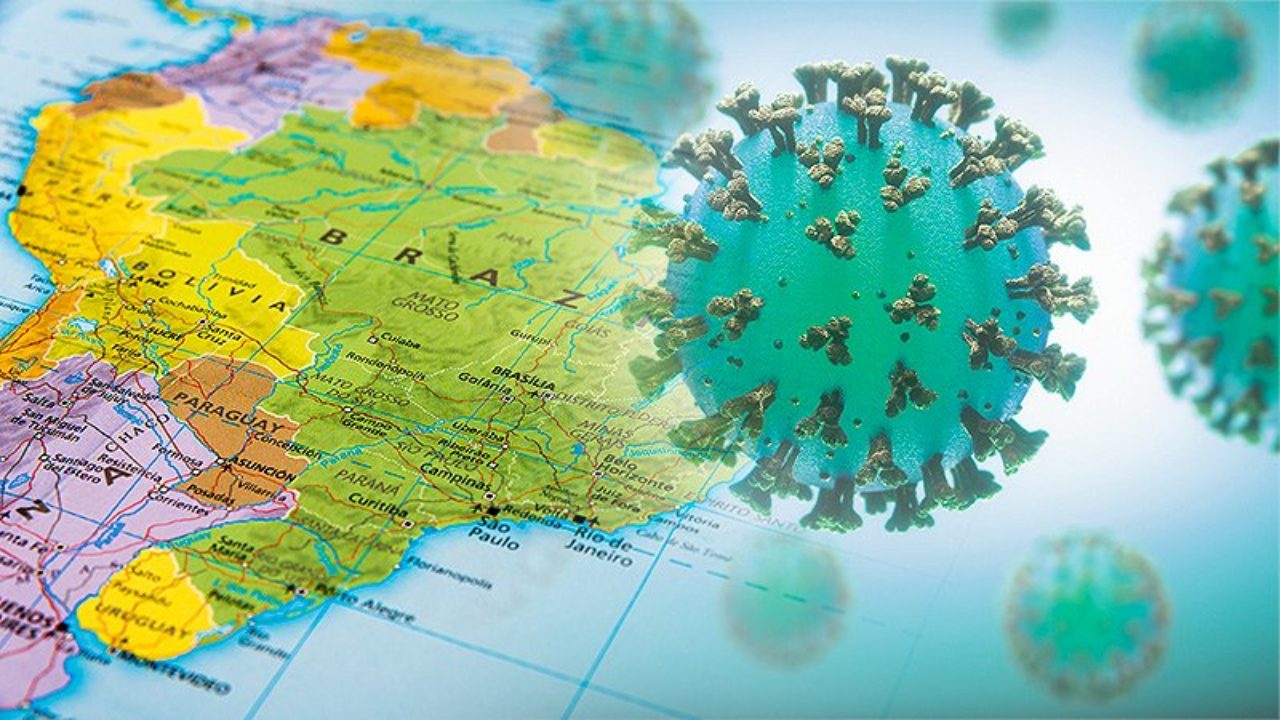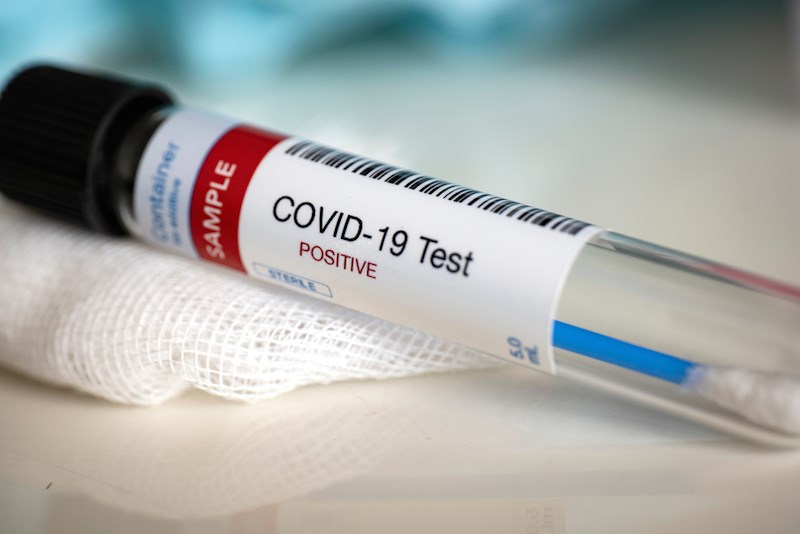RIO DE JANEIRO, BRAZIL – After breaking records in deaths by Covid-19 in Brazil, the government of Jair Bolsonaro on Friday, June 5th, changed the way data on the disease are disclosed daily. The data failed to include the total number of deaths and infections, as has been the case since the outbreak of the disease in the country – only the daily records were released. The website where data is typically compiled has also been taken down.
For the third consecutive day, the balance was released much later than usual, at around 10 PM, after the end of ‘Jornal Nacional’ (Evening News), the one with the largest audience in the country. With 1,005 new deaths and 30,830 cases recorded on Friday, the country now counts 35,026 deaths and 645,771 infections.
Over the past few days, the quality of the federal government’s press release on the disease has worsened. The daily press conferences with the Ministry of Health’s technical area, which marked the management of ex-Minister Luiz Henrique Mandetta and continued with Nelson Teich, were replaced by two or three during the week – which often end up canceled with no justification just before starting.

The number of cases and deaths, which were initially reported at 5 PM, began to be released, at first, between 7 PM and 8 PM. However, this week they began to be released at around 10 PM, after the end of ‘Jornal Nacional’, and after the time when part of the country’s printed newspapers close their editions for printing, hindering a detailed coverage of the figures.
When asked about the change in the schedule, Bolsonaro said in a press conference on Friday that “no one has to run to attend Globo”. The delay occurs so that “the latest updated figures can be gathered”, he said. The report data comprises information reported daily by the State Governments. However, the Ministry itself has repeatedly said that the states report their figures by 3 PM.
“If it’s ready at nine, that’s fine, but we will not be rushing at six in the afternoon to attend Globo, the funeral TV,” the President said, under his supporters’ applause during the press conference. On Friday, the report was released right after the end of the TV Globo daily news.
The President has consistently challenged the information passed on by the states and publicly implied that not all of it could have been caused by Covid-19, although only tested and confirmed cases are reported. For this reason, the data may also undergo a recount in the coming days, according to O Globo, which said that the government considers the information “fanciful or manipulated”.
Carlos Wizard, who will take over the Science, Technology and Strategic Supplies Secretariat, told the newspaper that the figures are inflated, despite scientific studies and the Ministry itself having acknowledged in earlier administrations that there are a large number of unreported cases due to the country’s testing bottleneck.
“There were many people dying from other causes, and the public administrators, only interested in getting a bigger budget in their municipalities, in their states, recorded everyone as Covid-19 victims. We are revising these deaths,” Wizard said, failing to provide evidence of such shortcomings.
The strategy of questioning official data was embraced in countries like Russia, the third nation in number of confirmed cases in the world (almost 450,000).
In Russia, a Ministry of Health protocol, which compiles regional data on deaths as in Brazil, determines that in drawing up a pathological diagnosis, a distinction must be made between death by Covid-19 “when this is the main disease (the original cause of death)” and death by other diseases when Covid-19 is present (and diagnosed with analytical methods), but “without clinical morphology, which could cause death”.

This may be one of the reasons for the low mortality rate in the country when considering the total number of cases: there are just over 5,500 deaths – placing Russia as the fourteenth in the world in this regard.
On Friday, Bolsonaro was once again annoyed by the way the figures are reported in the press. “Someone with ten comorbidities, is 94 years old, and has caught the virus. It will enhance their condition. It seems that these people… O Globo, Jornal Nacional, like to say that Brazil is a record holder in deaths. There’s even a lack of integrity: report on death by a million inhabitants. It’s like wanting to compare deaths in Brazil, with 210 million inhabitants, with countries with ten million”.
On Thursday, Brazil passed Italy in number of deaths caused by the novel coronavirus. On Friday, Bolsonaro inaugurated the federal field hospital of Águas de Lindoia (Goiás), the first in three months of pandemic in the country. Again, the President went out in public without a mask, contrary to the state legislation, and caused crowds.
The President also argued that the methodology of data disclosure needs to be rethought. “Daily deaths need to be disclosed. For instance, yesterday [Thursday] two-thirds of deaths were from preceding days. They need to release the figures for that day, the remainder is consolidated in the past. If you want to do a show on Fantástico all about deaths in recent weeks, that’s fine,” he added, attacking Globo Network and its news programs once again.
Given the lack of supplies and the capacity of laboratories to process such large quantities of samples, the country has a testing bottleneck. On Thursday, when the complete data were still being released, the country had 4,159 cases under investigation – in other words, awaiting results. As a result, Brazil is always looking in the rearview mirror in terms of data, since most deaths recorded and released on a given day in fact occurred on preceding days.
Although the report includes only the number of recorded deaths, the Ministry reports the deaths in its system on the day they occurred after tests have confirmed the disease. The change could only serve to hinder the follow-up of cases, particularly if the new report model, which does not include the total data, continues to be disclosed.
With a justification different from the President’s, the Ministry of Health’s press office holds the state and municipal health secretariats responsible for the delay in releasing the data. “The Ministry of Health reports that case and death data are provided by state and municipal health secretariats, which also have their own systems for disclosing this information, on public platforms.
Thus, the portfolio analyzes and consolidates the data, and in some cases there is a need to check with local officials,” says a note sent to journalists on Friday. However, the cabinet team stopped answering press requests by e-mail or telephone. A request about the number of cases and deaths from severe acute respiratory syndrome (SARS) in each Brazilian state has remained unanswered for two weeks.
Direct contact with journalists has been a failure since the start of the pandemic, but before that, questions were answered in daily press conferences with the technical area. However, as the number of press conferences has been reduced, questions sent to cabinet advisors have also been ignored.

The didacticism that characterized the press conferences – a moment of government accountability for measures to fight the novel coronavirus – has been lost. Despite the Ministers having very different personalities – Mandetta, more communicative, and Teich, more restrained and succinct – both of them, in their briefings, provided technical analysis and an overview of the pandemic in the country, as well as the measures already implemented and those planned for the control of Covid-19.
The Ministry of Health team is now headed by General Eduardo Pazuello (formerly Teich’s executive secretary). In his 20 days at the head of the portfolio, the interim Secretary has not yet attended a press meeting, although he sometimes uses this time to talk about issues that are not directly related to the pandemic, such as a breast milk donation campaign, for instance.
Meanwhile, Brazil is struggling to delineate the magnitude and severity of the pandemic in the country, and it is impossible to determine whether the country has reached a peak of daily deaths by Covid-19.
The country has not yet implemented any mass testing strategy: more than 190,000 tests are still waiting in line at the labs for results, and the Ministry of Health says more than 50,000 tests are processed each week. However, at the start of the crisis, the portfolio estimated that 30,000 tests per day were needed to have a real picture of the infected population. The management also fails to monitor the beds available in intensive care units (ICUs).
In April, ex-Minister Mandetta promised a platform to monitor this availability and, in the same month, both the Brazilian Agency for Industrial Development (ABDI) and the Brazilian Intelligence Agency (ABIN) announced the development of such a system; however, it was never impleented.
US criticism
Brazil’s mismanagement during the greatest health crisis of the past 100 years has led to criticism of the Brazilian government, even by US President Donald Trump, theoretically Bolsonaro’s ally. On Friday, Trump used Brazil as an example of a country with “difficulties” to deal with the coronavirus.
“If you look at Brazil, they are experiencing difficulties. By the way, they’re following the example of Sweden. Sweden is going through a terrible time. If we had done that, we would have lost a million, a million and a half, maybe even two million lives,” said the US president in the White House, adding that now is the time to expedite reopening in his own country.
The United States is the country with the highest number of Covid-19 cases in the world, with 1.9 million infections and over 108,000 deaths. Brazil ranks second in the world in the number of cases and third in deaths.
When asked about the statement of his American counterpart, Bolsonaro dodged the question. “He’s my friend, he’s my brother. A hug, Trump. I hope he gets reelected. Trump, that hug!” The President also said that “the press is failing to mention the return of chloroquine”, mentioning an article by The Lancet magazine, which led the W.H.O. to suspend studies with the drug.
Bolsonaro suggested that Brazil may leave the organization in the future, as Trump did. “The W.H.O. is like this: Trump took their money and they backed down on everything (…) And I’ll say it here: the United States left the W.H.O., and we are studying this in the future. Either the W.H.O. works without an ideological slant or we’ll be out too,” he threatened.
Source: El Pais

